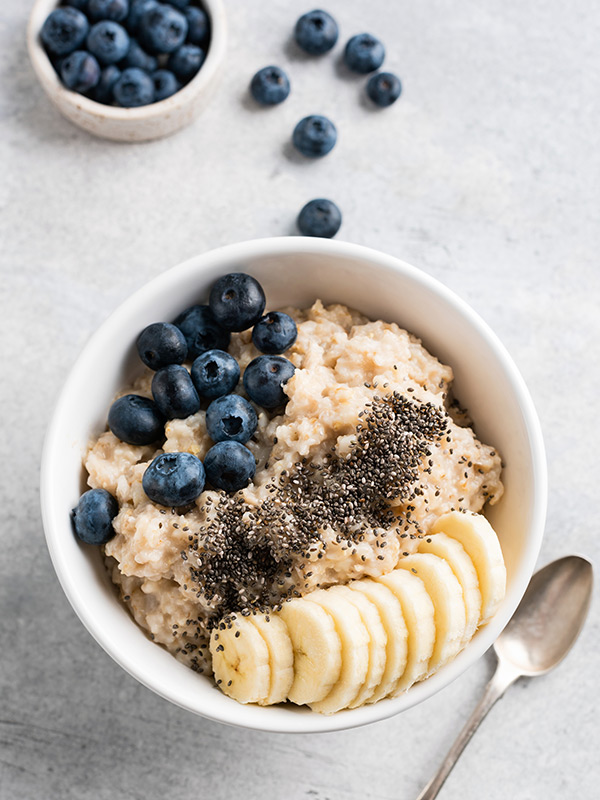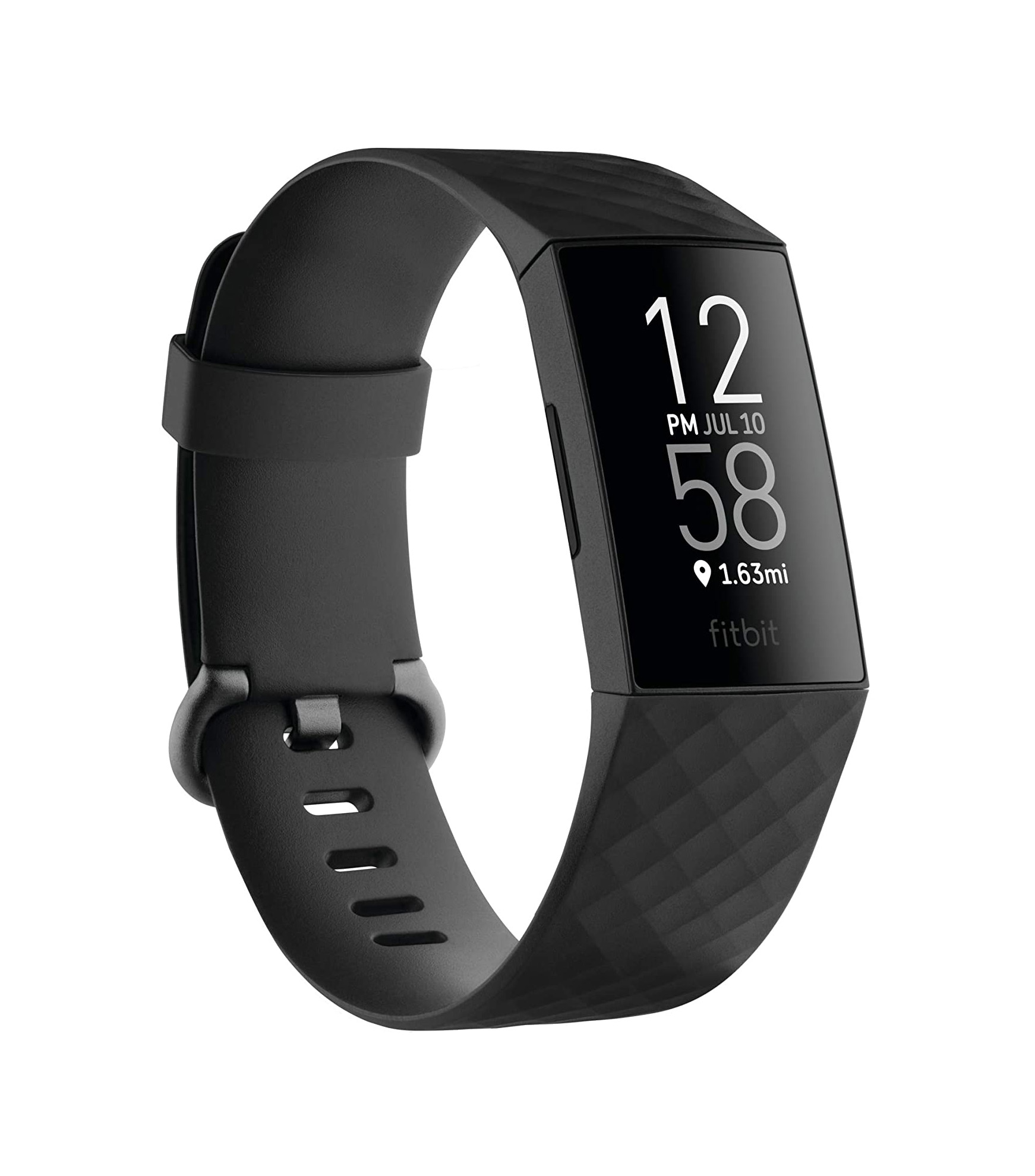Here's What Dietitians Really Think of Intermittent Fasting

It seems like there's always some buzzy diet that has gotten everyone's attention—suddenly, everyone you know is on it and can't stop talking about it. There's been Atkins, South Beach, keto, paleo, macrobiotic, plant-based, and probably a whole lot more that I can list, but we'd be here forever if I did. One diet or eating plan, in particular, that has been around for a while but has become popularized in recent years is intermittent fasting (IF).
Advocates of intermittent fasting say it's good for both the body and mind. Some people say it's helped them lose weight, reduce inflammation, and ward off certain diseases and that it supports brain health.
It all sounds good, right? But since we're always looking at what's trending in the wellness world with a sharp eye here at THE/THIRTY, we wanted to get a breakdown of what intermittent fasting exactly is and if it's really good for you from the experts. Here's what we discovered.
What Is Intermittent Fasting?

There are many variations of intermittent fasting, but overall, it can be described as an eating plan or pattern. However, it doesn't really have strict guidelines on the types of foods you should or shouldn't be eating. "Intermittent fasting is a form of time-restricted eating, where specific eating 'windows' are allowed during periods of the day," says Cara Harbstreet, MS, RD, LD, an intuitive eating registered dietitian and founder of Street Smart Nutrition. "There are many iterations of this, from the same set schedule each day to a combination of fasting days and days with typical or unrestricted eating." Some plans might dictate the number of calories you can consume as well.
Types of Intermittent Fasting

Since there's no one way to practice intermittent fasting, the spectrum of methods is pretty wide. The timing of eating windows can differ, and what you're allowed to consume can change depending on the method—like whether or not you're allowed to drink beverages aside from water.
Tamar Samuels, MS, RDN, NBC-HWC, a registered dietitian, a national board–certified health and wellness coach, and co-founder of Culina Health, shared some of the more popular approaches to intermittent fasting with us:
The 5:2 Approach: "This method of IF entails eating a usual diet for five days per week, then significantly limiting food intake to around 500 calories on the remaining two nonconsecutive days per week," Samuels explains. "This method may be helpful for people who want more flexibility in their diet because most of the week is spent eating a usual diet." She notes that this could lead to disordered eating since it's overly restricted and can lead to binge eating or overeating. Because of that, she personally does not recommend the approach.

The Time-Restricted Feeding Approach: This is likely the most common method. "Just like the name suggests, time-restricted feeding involves eating only during designated hours, typically an eight-hour window of eating and a 16-hour window of fasting," Samuels says. "When I do recommend IF, this is the approach I like the most. It's more sustainable and easier for people who tend to not be hungry in the morning."
The 24-Hour Fast Approach: Just like the name suggests, this method has you skipping food for 24 hours straight one day a week. Samuels doesn't recommend this method, as it can be too restrictive for most people.
The OMAD Approach: OMAD stands for "one meal a day," so you're limiting your calorie intake to once daily. "I don't recommend this approach, as it's too restrictive and is likely to contribute to binge eating," Samuels says.
The Benefits of Intermittent Fasting
It's important to note that the research on intermittent fasting is not 100% conclusive and definitive. That's because many of the studies have been conducted on animals, mainly mice. "Some of the studies also use a slightly different form of fasting called continuous calorie restriction, or CR, when studying the effects of fasting on longevity," Harbstreet says. "Research conducted in animal models doesn't always translate into the same benefits for people, so I encourage readers to use caution and consider the limitations of the available evidence of IF."
With that in mind, there have been quite a few promising studies that show the positive effects of intermittent fasting. Some are outlined below.
1. It Could Increase Insulin Sensitivity

"Because insulin levels drop when we haven't eaten in a while, IF may be a powerful tool for increasing insulin sensitivity, per a 2018 study published in Cell Metabolism," Samuels says. "It's important to note, however, that a ton of the research on IF has been done on overweight individuals with insulin resistance, meaning results may not apply to the average healthy person."
Harbstreet adds that there is some evidence that IF can support blood glucose management through regulating specific hormones, which may decrease insulin resistance or prevent/delay the onset of type 2 diabetes.
2. It Stimulates Metabolic Switching

"Metabolic switching occurs when a fasted body runs out of sugar, or glucose, to use as its main source of fuel," Samuels explains. "As a result, the body switches to start breaking down stored fat. Broken-down fats are turned into ketone bodies by the liver and then used by the body for energy. According to research published in The New England Journal of Medicine, ketone body production may start within eight to 12 hours of fasting, hence why popular IF methods recommend fasting for at least 14 hours to promote weight loss."
3. It May Boost Memory and Thinking

According to Johns Hopkins Medicine, studies have shown that intermittent fasting can boost verbal memory in adult humans (and working memory in animals).
4. It Could Help Reduce Inflammation

Samuels cites evidence that IF may bolster the body's stress response because it forces cells to be more adaptive. "This phenomenon harkens back to when our ancestors regularly experienced periods of starvation. As a result, cells became more adaptive, revving up their antioxidant activity and DNA repair and decreasing inflammation," she explains. "The thinking goes that, if these same adaptations occur in people who fast, IF may be protective against conditions like cardiovascular disease, type 2 diabetes, cancer, and Alzheimer's disease, but research in this area is still limited."
5. It Could Support Heart Health

Johns Hopkins Medicine also points to research that showed that IF improved blood pressure and resting heart rate in study subjects.
6. It Could Support Weight Loss

"Finally, IF may be beneficial for weight loss. However, it might just be due to the fact that you’re eating fewer calories overall and not necessarily from the act of fasting itself," Samuels says. She adds that other healthy diets like the Mediterranean diet may be just as effective.
The Cons of Intermittent Fasting
1. You'll Want to Avoid If You Have a Certain Condition

You might want to steer clear of intermittent fasting if you fall into one of these groups: people with advanced type 2 diabetes, pregnant or breastfeeding women, and those with a history of disordered eating. "People with insulin-dependent diabetes should eat at regular intervals to maintain stable blood sugar levels," Samuels says. "Pregnant and breastfeeding mamas need to consume adequate energy to support both themselves and their babies. When it comes to individuals with a history of disordered eating, IF can exacerbate unhealthy habits like overeating, binge eating, and restrictive dieting." She also adds that you might want to avoid intermittent fasting if you're prone to stress and anxiety.
2. It Could Lead to Disordered Eating

"At the end of the day, IF is a diet. It involves the planned and continued restriction of food, with or without a caloric deficit, and we know that the majority of diets are not sustainable beyond a two to five–year period for most people," Harbstreet says "Due to the potentially harmful impact on one's relationship with food, lifestyle limitations, and mental/emotional health, I do not recommend this approach for most people, especially those with a history of weight cycling, disordered eating, or eating disorders."
3. Fluctuations in Hunger

Harbstreet says this is a short-term drawback. "This may go without saying, but when switching to a fasting regimen from a normal or typical schedule of eating, there will likely be periods of hunger (potentially extreme)," she explains. "For me, the issue here lies in how this promotes a disconnection from our body's normal hunger cues. Many dieters have long histories of numbing their sensation of hunger or otherwise disrupting or delaying their body's signals for hunger."
5. It Could Lead to Binge Eating

Harbstreet says that some clients she's worked with who have tried intermittent fasting started becoming fixated on the clock. "They described feeling obsessed with watching the time tick down to their eating window, and several experienced binge-eating patterns that were also absent when they weren't following a fasting regimen," she says. "When we eat very quickly, as we tend to do when overly hunger, we can lose the ability to eat mindfully, thus reducing the overall pleasure and satiety we derive from meals."
6. It Could Increase Stress Levels

Fasting can increase levels of cortisol, which is the stress hormone. "This makes sense. Not eating for an extended period of time is bound to stress out our body's systems," Samuels says. "If you're someone who already struggles with anxiety, elevated cortisol levels related to IF may further exacerbate physiological symptoms of stress, like rapid heart rate and breathing, high blood pressure, and high blood sugar."
7. It Might Not Fit Certain Lifestyles

Intermittent fasting also might not be right for your particular lifestyle. Sometimes, your fasting times might not work with your regular activities, like family or social gatherings, which can be stressful. "For instance, if you're someone who lives for breakfast, there's no reason to subject yourself to time-restricted feeding," Samuels says. "Similarly, if you know you get light-headed when you haven't eaten in a few hours, fasting may pose a serious threat to your health."
What to Keep in Mind If You're Practicing Intermittent Fasting
If after reading the above you think intermittent fasting is right for you, there are a few things to be aware of and some tips that can help.
1. Eat Well-Balanced Meals

When it's time to eat, make sure you're eating well-balanced meals. Samuels says that includes healthy proteins (eggs, animal protein, dairy products); healthy fats (nuts, seeds, olive oil); complex starchy carbohydrates (legumes, 100% whole grains); and nonstarchy carbohydrates like leafy greens and colorful fruits and vegetables. "When we consider portion size of each food, I recommend making half of your plate nonstarchy vegetables, 1/4 of your plate 100% whole starchy carbohydrates, 1/4 of your plate healthy proteins, with one to two servings of healthy fats," she suggests.
2. Be Careful When Exercising

Harbstreet says that working out while in a fasted state is not necessarily a problem, but it depends on the length and intensity of exercise. You also might need to adjust your exercise habits, depending on the type of IF method you are doing. "I would not recommend exercise on days when people are doing 500-calorie fasts, 24-hour fasts, or OMAD fasts. Exercising without appropriate fuel can impair metabolism, disrupt stress hormones, and negatively impact physical and mental performance," Samuels adds.
3. Stay Hydrated and Get Enough Sleep

Across the board, it's always important to stay hydrated and get quality sleep. "Depending on what type of IF you are doing, these habits may be especially important because fasting can alter stress hormones, which can make sleep worse," Samuels says. "Furthermore, being adequately hydrated can help to minimize hunger, which may be more of an issue with people who are doing IF."
So What's the Verdict?

Because everyone's body and lifestyle are different, figuring out whether intermittent fasting is right for you is a personal choice. It's always advisable to speak with your doctor, a nutritionist or dietitian, or another healthcare professional who can help you figure out if it's a good fit based on your medical history.
Both Harbstreet and Samuels caution that the practice might not be sustainable for extended periods of time. It can get especially tough when you're traveling, celebrating holidays, or attending family events. There may be other ways to eat well that might work better for you.
Now that you're aware of the pros, cons, and other tips, it's up to you to decide if it's the right step.
Next up: The Thyroid Diet: How to Eat for Faster Metabolism and More Energy
This article is provided for informational purposes only and is not intended to be used in the place of advice of your physician or other medical professionals. You should always consult with your doctor or healthcare provider first with any health-related questions.
Sarah is lifestyle writer and editor with over 10 years of experience covering health and wellness, interior design, food, beauty, and tech. Born and raised in Los Angeles, she attended New York University and lived in New York for 12 years before returning to L.A. in 2019. In addition to her work at Who What Wear, she held editor roles at Apartment Therapy, Real Simple, House Beautiful, Elle Decor, and The Bump (sister site of The Knot). She has a passion for health and wellness, but she especially loves writing about mental health. Her self-care routine consists of five things: a good workout, “me” time on the regular, an intriguing book/podcast/playlist to unwind after a long day, naps, and decorating her home.




